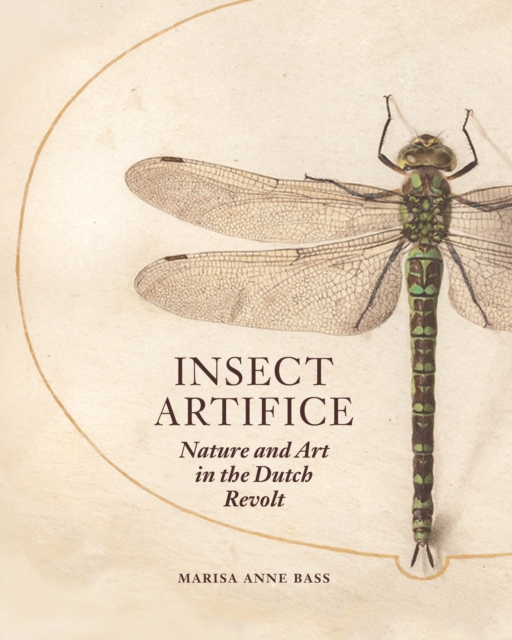Insect Artifice: Nature and Art in the Dutch Revolt

Insect Artifice: Nature and Art in the Dutch Revolt
How the nature illustrations of a Renaissance polymath reflect his turbulent age
This pathbreaking and stunningly illustrated book recovers the intersections between natural history, politics, art, and philosophy in the late sixteenth-century Low Countries. Insect Artifice explores the moment when the seismic forces of the Dutch Revolt wreaked havoc on the region's creative and intellectual community, compelling its members to seek solace in intimate exchanges of art and knowledge. At its center is a neglected treasure of the late Renaissance: the Four Elements manuscripts of Joris Hoefnagel (1542-1600), a learned Netherlandish merchant, miniaturist, and itinerant draftsman who turned to the study of nature in this era of political and spiritual upheaval. Presented here for the first time are more than eighty pages in color facsimile of Hoefnagel's encyclopedic masterwork, which showcase both the splendor and eccentricity of its meticulously painted animals, insects, and botanical specimens. Marisa Anne Bass unfolds the circumstances that drove the creation of the Four Elements by delving into Hoefnagel's writings and larger oeuvre, the works of his friends, and the rich world of classical learning and empirical inquiry in which he participated. Bass reveals how Hoefnagel and his colleagues engaged with natural philosophy as a means to reflect on their experiences of war and exile, and found refuge from the threats of iconoclasm and inquisition in the manuscript medium itself. This is a book about how destruction and violence can lead to cultural renewal, and about the transformation of Netherlandish identity on the eve of the Dutch Golden Age.PRP: 505.92 Lei
Acesta este Prețul Recomandat de Producător. Prețul de vânzare al produsului este afișat mai jos.
404.74Lei
404.74Lei
505.92 LeiLivrare in 2-4 saptamani
Descrierea produsului
How the nature illustrations of a Renaissance polymath reflect his turbulent age
This pathbreaking and stunningly illustrated book recovers the intersections between natural history, politics, art, and philosophy in the late sixteenth-century Low Countries. Insect Artifice explores the moment when the seismic forces of the Dutch Revolt wreaked havoc on the region's creative and intellectual community, compelling its members to seek solace in intimate exchanges of art and knowledge. At its center is a neglected treasure of the late Renaissance: the Four Elements manuscripts of Joris Hoefnagel (1542-1600), a learned Netherlandish merchant, miniaturist, and itinerant draftsman who turned to the study of nature in this era of political and spiritual upheaval. Presented here for the first time are more than eighty pages in color facsimile of Hoefnagel's encyclopedic masterwork, which showcase both the splendor and eccentricity of its meticulously painted animals, insects, and botanical specimens. Marisa Anne Bass unfolds the circumstances that drove the creation of the Four Elements by delving into Hoefnagel's writings and larger oeuvre, the works of his friends, and the rich world of classical learning and empirical inquiry in which he participated. Bass reveals how Hoefnagel and his colleagues engaged with natural philosophy as a means to reflect on their experiences of war and exile, and found refuge from the threats of iconoclasm and inquisition in the manuscript medium itself. This is a book about how destruction and violence can lead to cultural renewal, and about the transformation of Netherlandish identity on the eve of the Dutch Golden Age.Detaliile produsului









